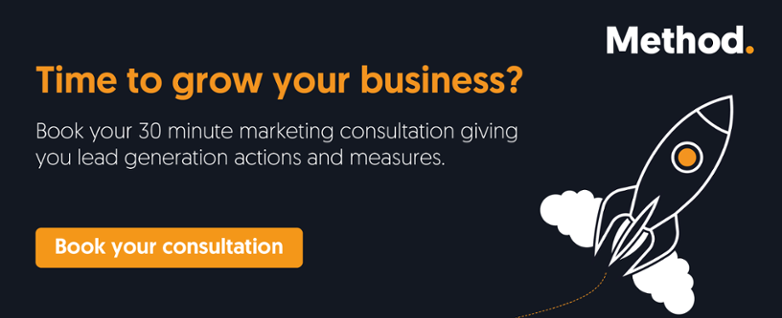Einstein once said 'A person who never made a mistake never tried anything new.'
Not all of us are blessed with the ability to theorise ground-breaking science, but some of us are savvy enough to own a business and manage marketing campaigns.
And if you're reading this as someone who is responsible for a business's growth, there's a 20/10 chance that you've made mistakes before. There ceases to exist a successful business owner who hasn't.
It would be weird if we didn't make mistakes. It's normal. We're human, and mistakes happen - mistakes lead to growth. Sometimes, life simply doesn't work out the way we planned it. It's all about the recovery - how we overcome these hurdles, and the lessons we pinch from these telling experiences.
One of the biggest, most common mistakes we all make as human beings? Caring too much about the wrong things.
If you're putting too much pressure on yourself to be perfect and not make any mistakes, it's probably a good idea to take a leaf from Einstein's book. It pays more to care less - once you rearrange your priorities, you'll see the coins piling up.
Stop giving a f*ck...
Let's explore a few concepts from a famous book that you've probably heard of - all thanks to its comically abrasive title. Mark Manson's The Subtle Art Of Not Giving A F*ck, which sold over 50 million copies is perhaps the highest-grossing piece of modern literature that is categorically 'anti-self-help.'
Manson's principles are funneled towards a no-nonsense perception that tells us to stop giving a f*ck about the things that create issues, waste time, drain energy and cost too much. It's about getting rid of things that no longer serve us, to make room for the things that actually matter.
Whether it's finally getting rid of unreliable resources, ending a partnership that you didn't actually benefit from, or perhaps it's all about a priority change-up.
Being successful in business isn't about wearing designer clothes to the office, or being able to afford the newest Porsche. It's about generating growth in a way that is productive, efficient, and healthy.
The less we care about the non-important things, the more we can invest our energy into the more important aspects of life.
Because by caring less about the unnecessary things, we're reducing the mental output towards things we don't gain anything from, and instead focus on things that are actually profitable and productive.
So, how does it pay more to care less? And how can we establish what's actually important, so we can sift through the elements of our business to find out what we should really be giving a f*ck about?
- Choose your values
- Embrace failure, and learn from it
- Focus on what really matters: find where your personal and business goals overlap
- Take responsibility for your actions
- Embrace uncertainty
Choose your values
What really drives your business? What are you really trying to achieve? Get to the crux of the 'why.'
Why do you really want to sell your product? Reflect on the values your business upholds. Having a solid foundation of values stitches together the fabrics of your business, and helps you realise what makes your business tick. This helps align all of your future decisions alongside these values.
Embrace failure
It's hard to see it at the time, but failure is healthy. We are going to fail. It's inevitable. To thrive, we have to experience mistakes and their consequences. Otherwise, how will you identify what success is? Failure is what drives the motivation to do better and helps us learn from experience.
Manson encourages embracing failure as a learning opportunity rather than avoiding it. Foster a culture that encourages experimentation and risk-taking. By viewing failures as valuable lessons, you can adapt and improve your strategies, products, and services.
Where do your personal priorities and business overlap?
Identify the point at which your personal goals and business goals overlap. Make room in your life for your personal priorities, because they are just as important as work priorities. Bettering your work life betters your personal one too, and vice versa.
When you're off duty, you're off duty - taking a step back and giving yourself time to mentally and physically recuperate is actually one of the most productive things you can do for your business.
Make compromises for both so that you can achieve a nice healthy balance, rather than falling asleep with your emails open or taking phone calls on your family day out.
Setting boundaries
It's all about being completely real with yourself. Know your limits. Don't try to be someone you're not. Do you work better at 5am? Wake up early and bash out some tasks at the crack of dawn. Suffer with telephone anxiety? Plan face-to-face meetings or video calls instead.
Do what you've got to do. Who cares if someone thinks you're weird for checking your emails at 5:15am?
Look at yourself objectively, and accommodate your working mechanisms around this.
Caring more about your own personal well-being and boundaries is caring more about your business.
Take responsibility
Take responsibility for the things that you've failed on. Rather than blame-shifting or avoiding responsibility, The Subtle Art reminds us to accept we're human and that we make mistakes.
It can be a tough pill to swallow at times, but taking responsibility helps us to become better people, and gives us an opportunity to improve.
Embracing uncertainty and change
It's about accepting that we can't control everything. It's impossible. We can't have absolute control over what happens in work or in life. The more we stress over the things we can't control, the more anxiety we feel.
It's about accepting that we'll experience negative outcomes from time to time. Sometimes things just don't work out the way we anticipated they would. Valued team members unexpectedly quit, your competitor releases a better product than you, and you'll lose the deal. Life throws curveballs at us all the time, unpredictably. We can't do anything about it.
Embracing uncertainty is easier said than done, but switching your mindset to neutral can massively relieve workplace anxiety.
Provide value
Manson emphasizes the importance of focusing on providing value to others rather than seeking validation or external success. In business, this means prioritizing customer satisfaction and delivering products or services that genuinely meet their needs.
Drive contactable, reliable customer service to your clients or customers. Build genuine, meaningful relationships with customers and deliver actual value to their lives through your product or service.
By putting your customers first, you build trust, loyalty, and long-term success. The more you put your customers first, the more you grow.
The crux? Giving a f*ck about what really matters
Find meaning in things that are actually important not only for your working life but for your personal life too. The less energy you dedicate to things that don't actually serve you, the wealthier and healthier you'll be.
Keep it minimal, and make all of your business decisions based on what your business stands for.
It can be hard to stop caring about things that stress you out. It's easier said than done. We can't control the situation or the outcome, but we can control our mindsets.
So how does all this pay more?
Manson's advice shouldn't be taken as black and white as the title suggests. It doesn't mean we should stop caring - but we should start giving a sh*t about the things that actually matter to us, the things that we genuinely benefit from.
The results? We reap the benefits of a more fulfilling business and a less bumpy ride to profitable growth. Adopting this mindset helps us to focus on the things that better us as humans, improve our relationships, generate growth, and better our lives overall.




